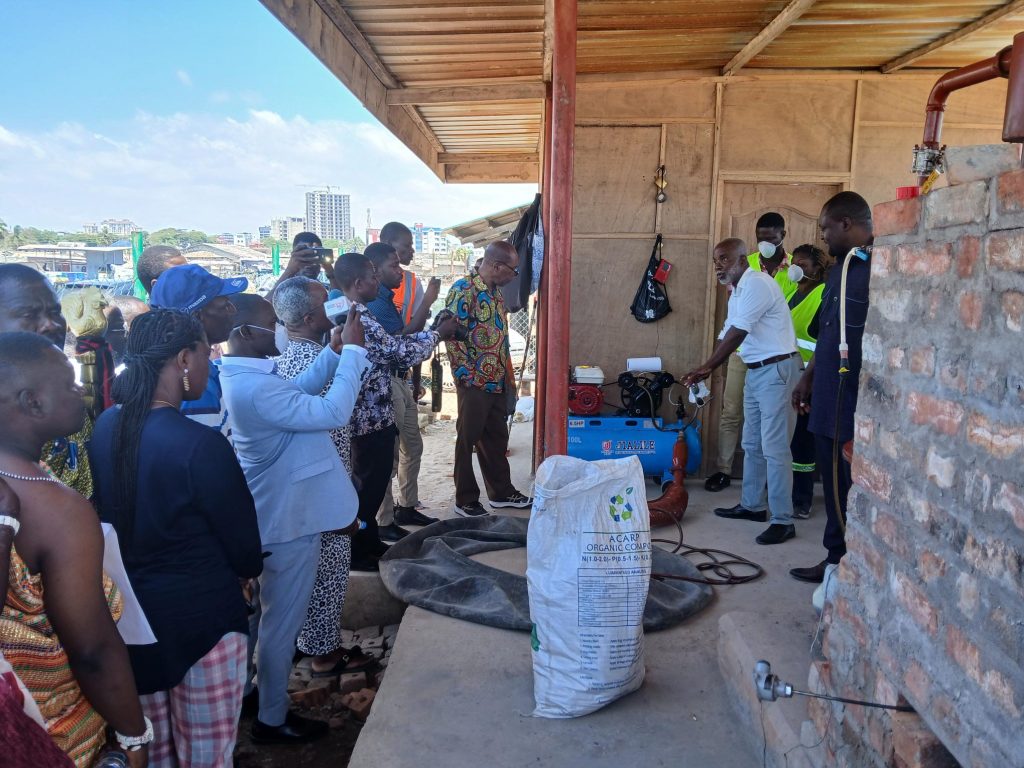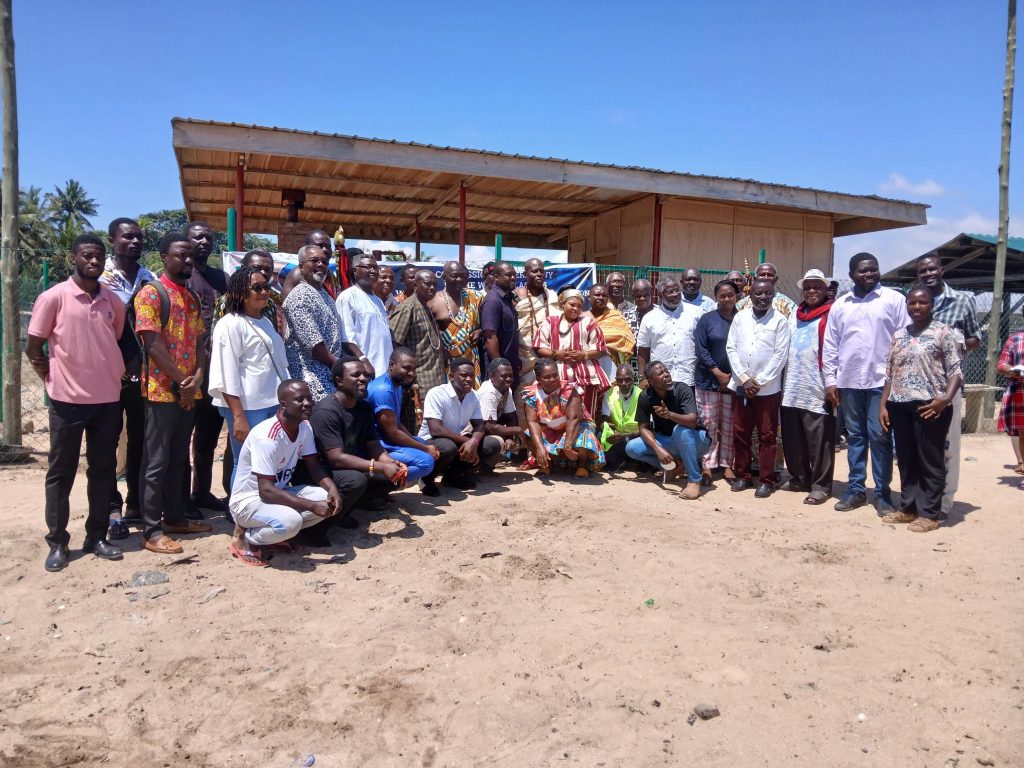By Eunice Hilda A. Mensah/Harriet Akosua F. Kwakye
Accra, Oct.23, GNA – The University of Ghana (UG) has commissioned a plastic valorization fuel facility for the Osu community.
The initiative aims to address plastic waste management by converting plastics into fuel, promoting sustainability and environmental conservation. It would provide residents, including fisherfolk, with access to fuel for their daily activities, such as powering outboard motors.
The facility utilizes a pyrolysis system that heats plastic waste, capturing the heat generated during the melting process. The heat is then cooled through a condensation process to produce various forms of fuel, including diesel, petrol, and gas.
At the commissioning ceremony, Professor David Dodoo-Arhin, Director of the Institute of Applied Science and Technology at UG, explained that the type of fuel produced depends on the varying conditions and temperatures during the production process.
He said that the project’s goal is to add value to plastics, while aiming to eliminate plastic waste from the environment, both on land and in the ocean.
“Many a times, fishermen have caught plastics instead of fishes in the ocean.
“The plastic waste in the ocean is broken down into micro-plastics, eaten by the fishes, which are in turn consumed by humans. Another danger is that plastics don’t degrade, and so it could be very dangerous to consumers,” he said.
The project is being funded by the French Embassy in Accra. The facility is expected to serve as a valuable resource for the community, helping to reduce plastic waste while generating alternative energy sources.

Prof. Dodoo-Arhin noted that the project would encourage fisherfolk and community members to collect plastic waste within the community and along shores.
“The project also aims to develop vocational training and entrepreneurship opportunities for unemployed young people,” he said.
Prof. Dodoo-Arhin stated that the initiative was part of the University’s efforts to contribute to society.
He assured that they would seek additional partnerships to expand the project to other communities.
“This has also created jobs for individuals involved in the value chain, including those who collect, segregate, wash, dry, and cut the waste into smaller pieces for use,” he added.
Mr. Frederick Kenneth Appiah, Deputy Director of Renewables at the Energy Commission, stated that the project aligned with the government’s energy transition and energy policy.
He said that the project paved the way for sustainable development and and the attainment of net-zero emissions by 2070.
“Through Energy Commission, National Petroleum Authority, the ministry itself, and all the key agencies, we are working together to create some kind of framework towards the development of biofuel, which this project will fall under,” he stated.

Mr. Appiah urged all stakeholders to collaborate and support the project, emphasizing the importance of expanding it to other regions.
“This is a project that everybody must have, whether coastal cities or even inner cities, because plastics are everywhere and it’s creating the menace that we cannot support,” he stated.
Nii Kwabena Bonnie V, the Osu Alata Mantse, encouraged the youth of Osu Alata to take advantage of the opportunities provided by Valoplastique.
He urged them to avoid disposing of plastic waste in the drainages.
“We plead with you to take advantage of this initiative, stop dumping waste into the gutters so the plastics can be used for the gas, this would make the sea clean, so that when fishermen go to sea they can come back with some catch,” he said.
Nii Kwabena Bonnie V also urged the youth to participate in the training provided by the institutions and to collect plastic waste.
“Learn from the training and also teach others so that those after you would also have work to do and there would be sustainability in the community,” he added.
As part of the project, 34 young people from the Osu Alata fishing community received training on how to operate, manage, and maintain the facility, and on the entire value chain.
They were awarded certificates for their participation.
GNA